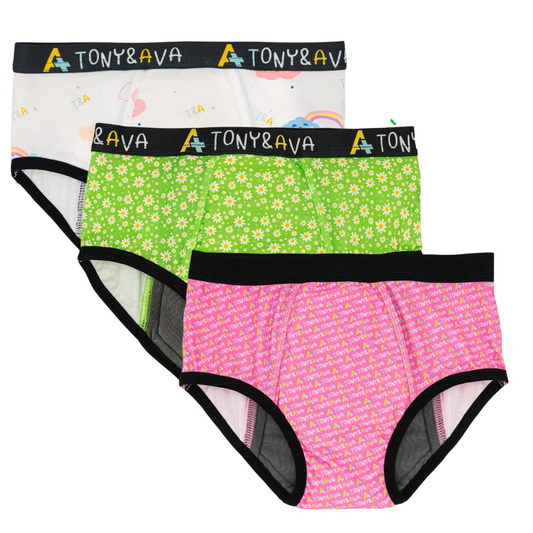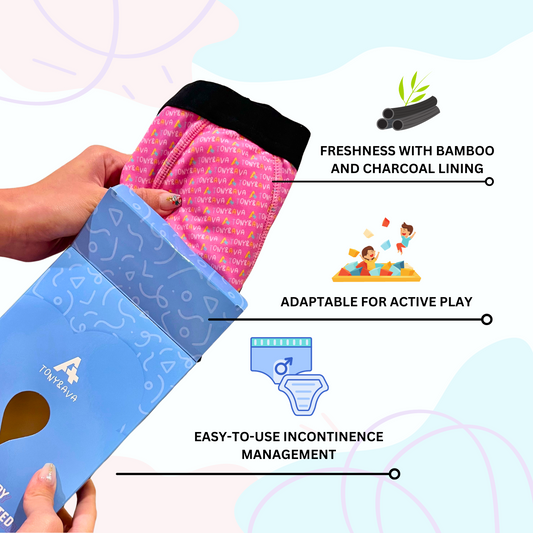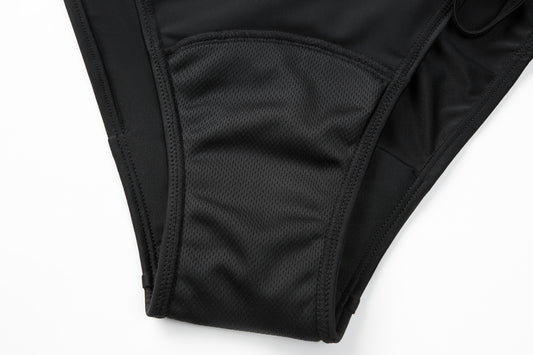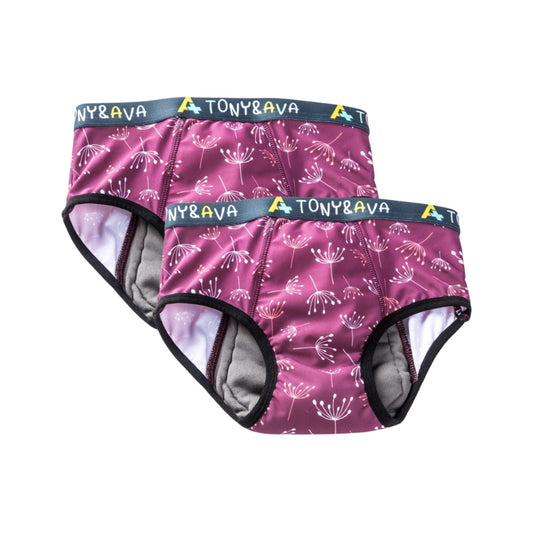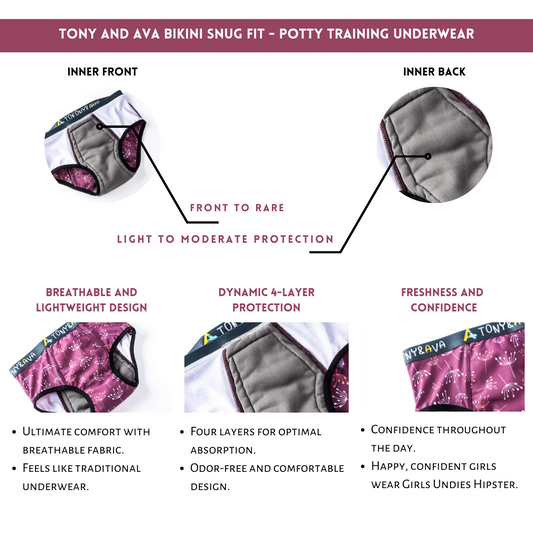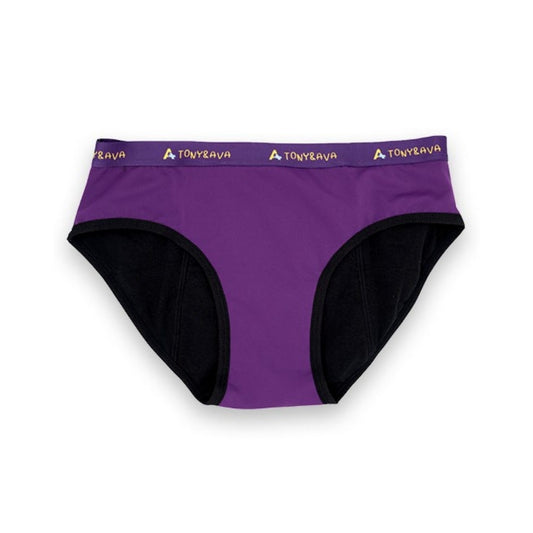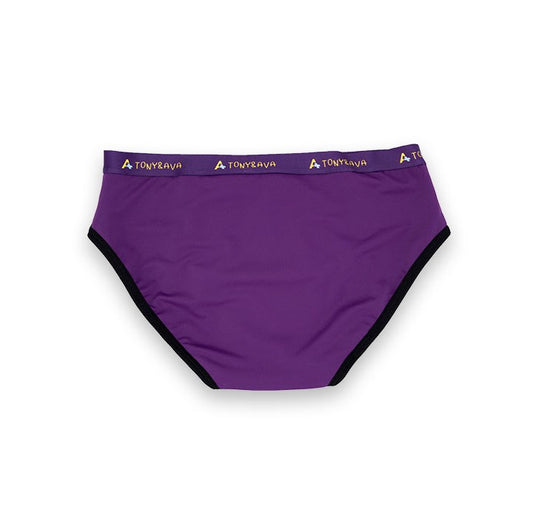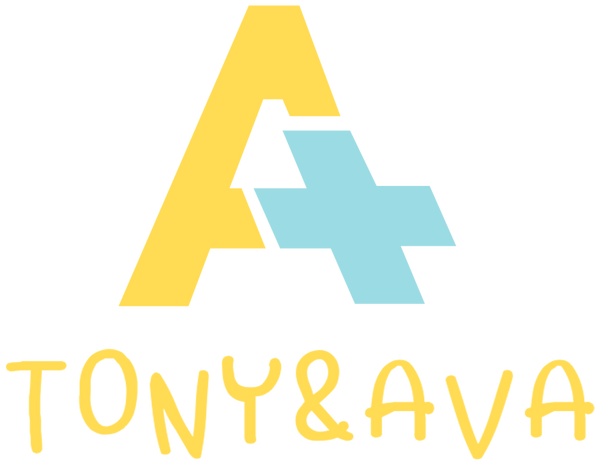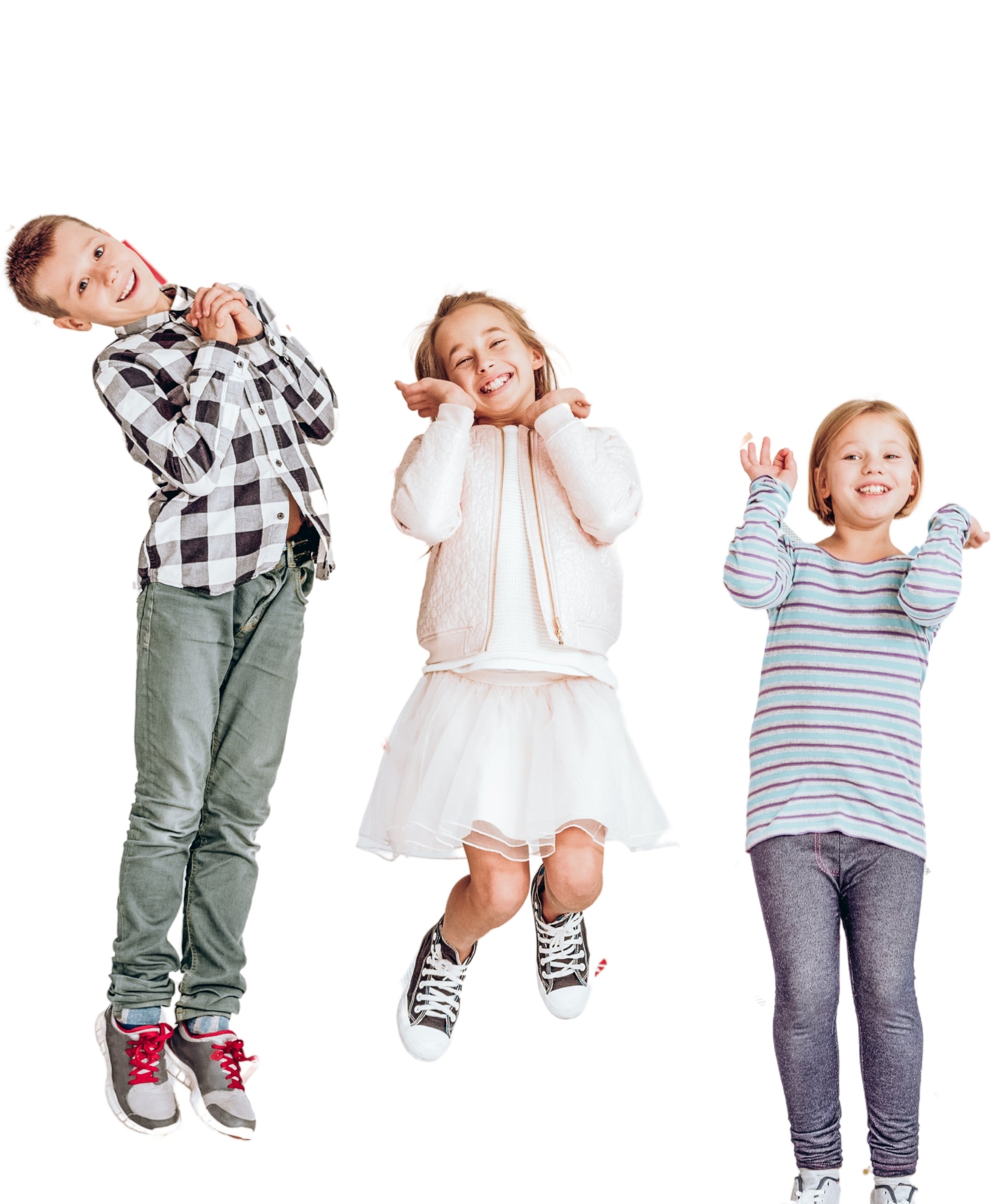It is a time in the journey of parenthood that is looked upon with both anticipation and dread...potty training. For some kiddos, accomplishing this task is relatively simple. They are agreeable to sitting on the potty, decide they do like being clean and dry, and voila! You have a potty-trained child. Then, there is the flip side of this coin...the child who could care less if they run around in a soiled diaper all day, the one who screams and runs from the toilet anytime you try to bring them near, the one you are worried is going to graduate high school and still not be potty trained.
No matter what kind of little one you have, the potty pros at Tony and Ava are here to help you with our best tried and true tips to help make potty training a child who doesn’t want to a little easier. We also have some amazing products to help so that you know what to do when your potty training kid keeps having accidents. Let’s take a closer look.
The first thing that will go a long way is simply being able to accept your child’s personality for what it is. Some kids are just far more strong-willed than others. Although that stubbornness can make you want to pull your hair out when they are young, it can be a highly positive trait as they get older. Keeping this mindset can help you view this trait in a more positive light when it comes to trying to get them to learn to toilet train.
Sometimes how you approach this task is everything when it comes to potty training a child who doesn’t want to. For example, it can be helpful to break up the tasks associated with potty training into smaller and more simplified steps. For instance, just start with having them come into the bathroom and look around. Let them turn the water off and on and flush the potty. Then, maybe have them just sit on the potty. Celebrate each baby step. Tackling this process in such a manner helps to erase the fears associated with it and allows lots of opportunities for success.
As with any task in life, the more fun and enjoyable you can make it, the better. This applies to potty training too! Now is the time to bust out those pom-poms and be your kiddo's biggest fan and cheerleader. Take the time to praise each success and encourage forward progress. Now, it is inevitable that things will not always go smoothly, but focus on the positive and hide those feelings of disappointment. Another way to combat setbacks and confusion is to establish a routine with consistent steps. Little ones who are learning a new task do best when there aren’t unexpected surprises.
If you are still wondering what to do when your potty training kid keeps having accidents, perhaps try a reward system. Some kiddos love putting a shiny sticker on a sticker chart that can earn a bigger prize when it is filled up. Other children will use the restroom for a handful of M&Ms. The key is finding what rewards motivate your child and then implementing their usage for effective positive reinforcement.
Maybe you have tried all of these methods and your child seems to be making no forward progress, or even worse, is regressing. There are times that a child is simply not ready to begin the process of toilet training. The reality is that a child has to be both physically and emotionally ready to effectively potty train, and if they are not, no amount of rewards or cajoling can rush the process along.
Some signs to look for that may indicate a readiness to potty train include consistently waking up dry after sleeping and napping. Younger children may still wake up wet after overnights, but day training can still be started.
If your child seems mentally ready to toilet train but is still having accidents, don’t be afraid to consult with their pediatrician, as there is a possibility there could be a medical reason, such as chronic constipation, for their inability to remain dry and clean.
In the meantime, the crew at Tony and Ava is here with our great selection of leak control underwear to help you and your child have a successful potty training experience.
